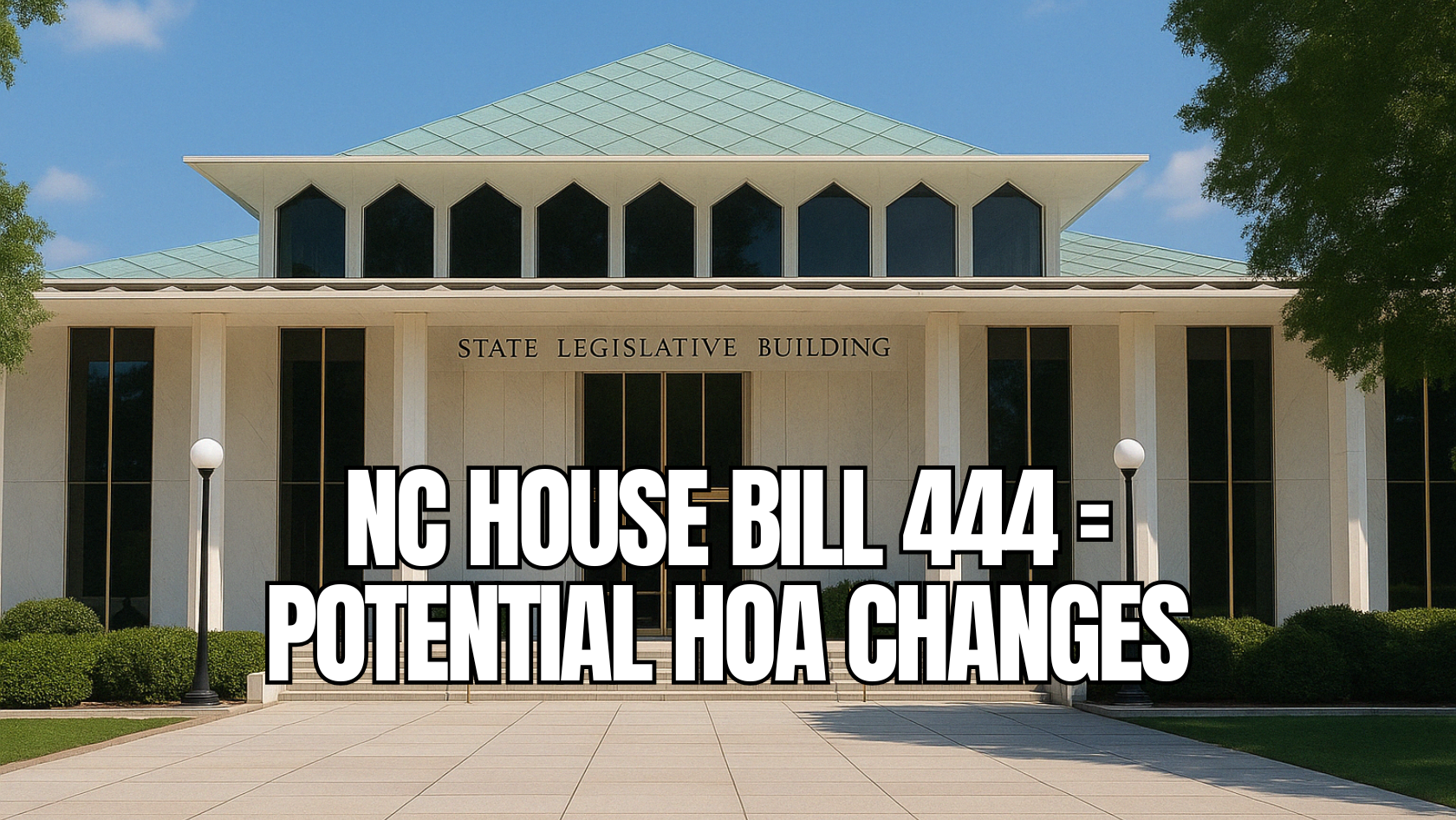If you’re buying or selling a home in North Carolina—especially within a homeowners association (HOA)—you’ll want to be aware of a proposed bill in the NC House that could bring sweeping changes to how HOAs operate. House Bill 444, also known as the Homeowners Association Reform Bill, is designed to increase fairness, transparency, and accountability across HOAs in our state. You can download and read the entire bill at this link.
Here’s a simple breakdown of the most major changes that this bill could mean for current and future homeowners:
Key HOA Reforms Buyers and Sellers Should Know
1. New Rules Only Apply to Future Owners
If an HOA updates its rules, those changes won’t apply to current owners—only to future buyers. That means you won’t suddenly be subject to new restrictions during your ownership.
2. Stricter Rules Around Fines and Foreclosures
HOAs will now need to give clear notices before placing liens or beginning foreclosure. And importantly, they can only foreclose if the owner is at least $2,500 behind or six months late on dues.
3. Caps on Fees and Fines
- Late payment fees are capped at $20/month or 10% of the balance.
- Per-violation fines cannot exceed $100 per day, and there’s a $2,500 max per issue.
- HOA management companies cannot profit from fines or charge hidden fees during closings
4. Lessons and Tutoring Are Protected
HOAs cannot fine homeowners for offering small group educational or music lessons in their homes or yards. This is a win for tutors and families alike.
5. Mediation Required Before Suing
If a dispute arises between a homeowner and their HOA (outside of unpaid dues), mediation is now mandatory before going to court. This step helps avoid costly and time-consuming litigation.
6. Transparency for Homeowners
HOAs must now:
- Respond to document requests within 30 days.
- Provide updated budgets to owners.
- Allow inspection of manager contracts and financial records from the past three years.
Why This Matters to Home Buyers and Sellers in the Triangle
If you’re buying a home in an HOA neighborhood in Raleigh, Durham, Cary, Chapel Hill, or anywhere across the Triangle, understanding these proposed changes is critical. They protect your rights, give you more control, and ensure HOAs can’t overreach with arbitrary rule changes or hidden costs.
For sellers, it’s equally important to know how these rules affect what you can or can’t be held liable for before closing—especially around fines and assessments.
Final Thoughts
Whether you’re a first-time homebuyer or selling your long-time home, navigating HOA communities in North Carolina is about to get a lot more transparent—if this bill becomes law.
Have questions about buying or selling in an HOA community? I’d be honored to help. Take a moment to email me at this link so that we can talk about your goals and how to make sure your next move is a smooth one.
Thanks for reading!
Brandon Yopp


